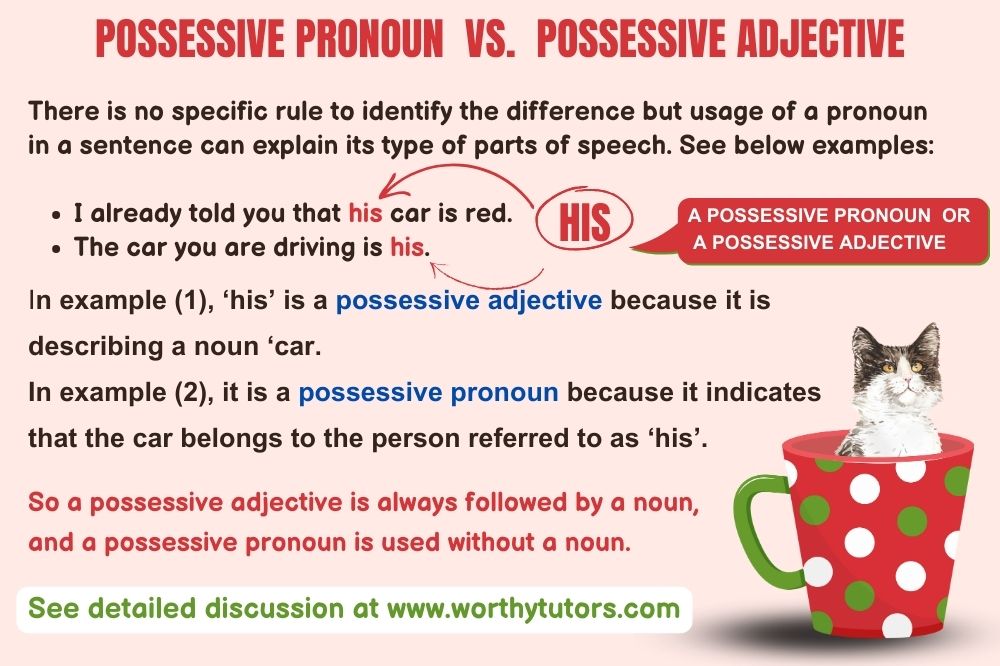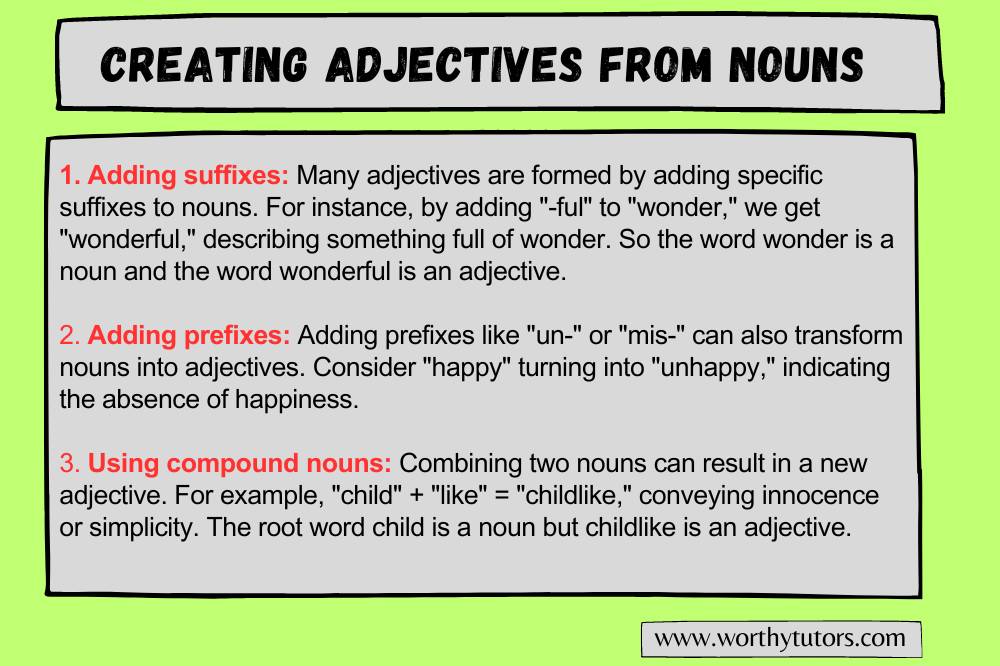
We use pronouns in the place of nouns to avoid redundancy in the sentence and they help make communication more concise. Pronouns have various functions in a sentence and are classified into various types based on their role in a sentence. Two types of pronouns that can sometimes appear confusing are reflexive pronouns and emphatic pronouns, also known as intensive pronouns. In this article, we’ll explain the differences between reflexive pronouns and emphatic pronouns.
I might surprise you that reflexive pronoun and emphatic pronouns are same and equal in numbers but they only differ in their usage in a sentence. You use words like myself, ourselves, herself, himself, yourself, yourselves, themselves, and itself in your routine sentences. But you do not notice how you are using these words. After reading this article, you will be familiar with the difference between reflexive pronouns and emphatic pronouns.
Consider these two sentences
- “My mother introduced herself to the guests”
- “My mother herself prepared the lunch for the guests”.
Did you notice the difference between the use of ‘herself’ in above sentences?
In the first sentence, ‘herself’ reflects back to the subject in a sentence (the action of the noun [mother] upon the doer). Whereas, in the second sentence ‘herself’ is used just to emphasis and stresses on a particular noun (mother). Therefore, the first sentence is an example of Reflexive Pronouns and the second one of Emphatic Pronouns.
Difference Between Reflexive and Emphatic Pronouns
Differentiating between a reflexive pronoun and an emphatic pronoun is not much difficult but it can be tricky. If you got confused, we have simplified this differentiation for you with examples in sentences. Hope, after reading it, you will be able to differentiate reflexive pronouns and emphatic pronouns. Here are few points to remember before reading examples in sentences.
- Reflexive pronouns reflect the action back to the subject, indicating that the subject performs the action on itself. Emphatic pronouns (intensive pronouns) emphasize or intensify a preceding noun or pronoun, adding emphasis to the action but not changing its basic meaning.
- Reflexive pronouns are crucial to the sentence’s meaning and often indicate that the action is done independently by the subject. Emphatic pronouns are optional and serve to emphasize or intensify the subject’s role in the action.
- Reflexive pronouns are used as an object of a verb, whereas we use Emphatic pronouns right after the noun they are emphasizing.
Reflexive Pronouns
Reflexive pronouns are words used when the subject and the object in a sentence are the same person or thing. They reflect the action back onto the subject, indicating that the subject is performing the action on itself. Reflexive pronouns always end with “self” (singular) or “selves” (plural). Here are the reflexive pronouns: myself, yourself, himself, herself, itself, ourselves, yourselves, and themselves.
Explaining Reflexive Pronoun with Examples:
- She played the piano herself.
In this sentence, “herself” reflects the action back to “she,” indicating that she played the piano.
- They arranged the party themselves.
Here, “themselves” reflects the action back to “they,” signifying that they are the ones who arranged the party.
Some More Examples of Reflexive Pronouns
- I needed a break, so I decided to treat myself to a spa day.
- She told me to trust yourself and believe in your abilities.
- He was feeling overwhelmed, so he took a moment to gather himself.
- The cat cleaned itself by licking its fur meticulously.
- After the challenging hike, we rewarded ourselves with a picnic.
- Before the big presentation, remember to calm yourselves and stay confident.
- The team celebrated the victory by congratulating themselves.
Emphatic Pronouns (Intensive Pronouns)
Emphatic pronouns, often referred to as intensive pronouns, emphasize a preceding noun or pronoun within the same sentence. Unlike reflexive pronouns, emphatic pronouns are not essential for the sentence’s meaning, but they add emphasis to the action. Emphatic pronouns also end with “self” (singular) or “selves” (plural), just like reflexive pronouns. Here are the Emphatic/intensive pronouns: myself, yourself, himself, herself, itself, ourselves, yourselves, and themselves.
Explaining Emphatic/Intensive Pronoun with Examples:
- I myself will fix the issue.
In this sentence, “myself” serves as an emphatic pronoun emphasizing that the speaker will personally fix the issue.
- You yourself can learn to bake the cake.
Here, “yourself” emphasizes that the person being addressed can learn to bake the cake without external help.
Some More Examples of Emphatic Pronouns
- I myself will do the task.
- You yourself can achieve your goals if you believe in.
- He himself fixed the car.
- She herself baked the cake.
- The cat itself groomed meticulously.
- We ourselves managed the entire project.
- You yourselves need to prepare for the test.
- The students themselves organized the event.
Summary
In conclusion, while reflexive pronouns and emphatic pronouns share the “self” or “selves” endings, their functions within sentences are distinct. Reflexive pronouns reflect the action back to the subject, whereas emphatic pronouns (intensive pronouns) intensify or emphasize a preceding noun or pronoun, providing additional clarity or emphasis to the action.
Exercise for Students to Distinguish Reflexive Pronouns and Emphatic Pronouns from given sentences.
Read the following sentences and determine whether the underlined pronoun is a reflexive pronoun or an emphatic pronoun.
- She decided to complete the project herself.
- They congratulated themselves on the remarkable achievement.
- I always rely on myself to solve problems.
- The cat cleaned its fur meticulously by licking itself.
- You should believe in yourself and your abilities.
- He will have to explain the situation himself.
- After the race, the team members rested and congratulated themselves.
You Might Be Interested In
Possessive Pronouns vs. Possessive Adj
Download PDF Book Parts of Speech





